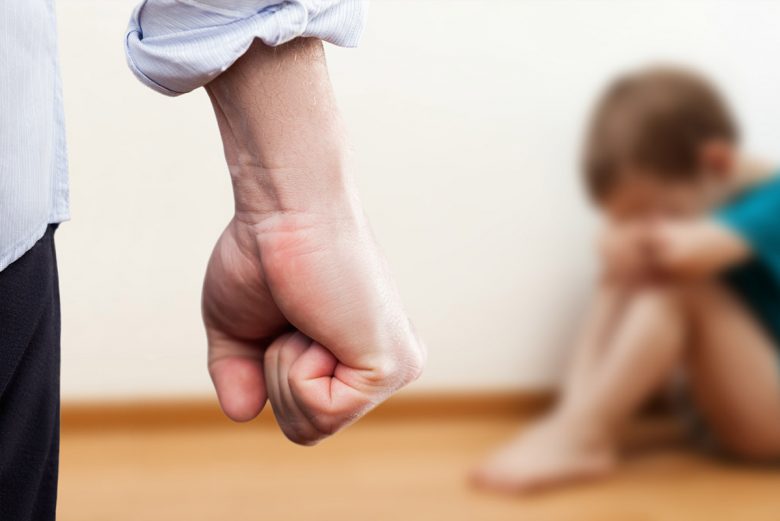
Yes, you can kick the yelling habit for good.
You know the cycle. You ask your kids to do something. They don’t listen and don’t listen, until finally you lose your cool. You yell and you regret it.
Yelling is usually the result of deeper patterns. You won’t stop the yelling if you don’t solve the patterns. In this episode, Carol and Anne bring those patterns to light. Their tips will help you create cooperation and calm.
This episode’s Parenting Practice
Next time you feel the urge to yell, stop what you’re doing. Go and look your child in the eyes and tell them exactly what you want and what you expect from them and have an honoring dialogue. Get your child’s confirmation that they heard you.
If you need to break an old pattern, go to your child and say, “I have a habit of yelling. I do not want to do that anymore. I want us to all work together. I’m going to try something different. Are you willing to try it with me?”
Transcript of podcast episode
Carol: Are you a yeller, Anne?
Anne: I’m not. Are you a yeller mom?
Carol: You tell me. Well, I’d say I’m a recovered yeller.
Anne: You are. You’re a reformed yeller.
Carol: I’m a reformed yeller that’s why I can talk about this.
Welcome to the “Child Whisperer Podcast.” I’m your host, Carol Tuttle, author of the best-selling parenting book “The Child Whisperer.” I’m with my co-host, Anne Tuttle Brown.
Yes. I would lose control in yelling. There was an issue, for sure. But you’re not, right?
Anne: I’m not. Do you think that’s true as a Type 2? I mean, I have a lower volume naturally. I’m not as prone to yell. I can nag, I can demand, but I don’t get louder in volume.
Carol: You don’t think you get a little bit louder?
Anne: Yeah. I guess I do. I mean, yeah. Compare my yelling to your yelling; I don’t yell. Compare my yelling to what’s yelling for me, and I do get louder in volume for what’s natural for me.
Carol: I’d say every Type has the potential to be a yeller. In Lifestyle, we have a series on how each Type expresses their anger and how to start managing that. Now in the world of a parent, there’s a really prevalent pattern. We’re going to look at three different patterns that can play out that keep you stuck in the yelling habit. The first pattern is you have got into the habit that your children will not respond to what you’re asking of them until you yell.
Anne: You’ve taught them how to…you’re teaching them that they don’t have to listen to you until you get intense.
Carol: Yeah. “Mom’s not serious till we get the yell.” And so that’s now become a pattern. It’s a habit. It’s something that just recycles itself. And a parent will resort to yelling because they want the result. They’re like, “I just want you to do this.” And so you’ll go to that and, unfortunately, too often it works but not for favorable reasons.
Anne: Okay. I have to admit. I am a yeller because I’m hearing my daughter’s voice in my mind, “Why are you yelling, mom?” And I’ll say, “Because I feel like you’re not listening to me until I get more serious and yell.”
Carol: Well, there you go. You even tell her why you’re yelling.
Anne: Then she’s like, “Oh, okay.” So I’m like, “Do you want to start over? Can we do this again? All right. I need you to go get in the bath.”
Carol: Well, I’m curious. What were you saying before that? What was your method prior to…
Anne: Oh. Same thing.
Carol: Because you just told her why you were doing it. “Because I want you to pay attention and do what I’m asking.”
Anne: I think the difference was I was doing something else until finally… So like, “Get in the bath. You need to get in the bath.”
Carol: Were you busy doing something while you were telling her that?
Anne: Yes. Exactly. Until I finally… “Katie, get in the bath.”
Carol: Did you go to her, look her in the eye and say, “Here’s what’s happening in the next 10 minutes?”
Anne: No. And so if I do that, I can…
Carol: You were busy talking, kind of side-talking to her.
Anne: Yup. And even if I’m not yelling, I find that I’ll do that when I’m nagging like, “Hurry, get your shoes on. Get your shoes on,” because I feel like, “We need to get out the door.”
Carol: But you were busy doing something else.
Anne: But, like, honestly, I’m not going be ready for another five minutes. But I feel like if I start telling the kids what to do, it’ll speed things up, but it won’t. Like, if I just do what I need to do and then put my direct focus on helping them get ready.
Carol: Yeah. Wouldn’t you think at some level subconsciously they’re thinking, “Well, she’s not that serious about it because she’s doing a bunch of other stuff.”
Anne: But then I think I’m serious about it because I’m talking about it. So it’s like this weird thing.
Carol: I know. You’ve cracked the code.
Anne: If I talk about it, if I yell about it, then I’m serious. But then the kids, they’re like, “Oh, she doesn’t…” you know.
Carol: Well, compare that. You’re side-talking, busy doing other things. Something you really want her to follow through on is now being told to her, and she’s not being given a choice really, “Here’s what you need to do next.” But you’re still sidetracked.
Anne: “Just do what I say, okay?”
Carol: Okay. Well, what if, wouldn’t you think she’d take it more seriously if you were to stop what you were doing and you sit down and look her in the eyes and said, “Here’s what’s happening. This is what I want you to choose.”
Anne: Exactly. And I’ve seen the fruits of that.
Carol: “Are you willing to do that right now?” And you get an answer. So you enroll them because you’re just telling them what to do and they should just say, “Okay. I’ll go do it.”
Anne: Or they’re not because they don’t know why they need to do that. And I find that if I do just take that moment and talk to them directly, and then she’ll say, “But why?” or I’ll say, “You need to get in the bath because…” then we can have that dialogue and she’ll respond. But, I think, as a busy parent you’re like, “Just listen to me. I don’t have time to look you in the eyes and talk to you about this. Just get in the bath.” But that’s ineffective. That’s why I yell.
Carol: It’s not.
Anne: That’s part of being a parent.
Carol: It would take you less time to go have that more focused conversation than all the effort applied and then yelling.
Anne: And there are things around certain situations in life where you can just create consistency. And if a bath is just happening every single…like, there has been that pattern long enough, like your kids know that’s what happens, and so you don’t find yourself in those scenarios where you have to sit down and explain it all. But there will be…
Carol: Well, we’re trying to break the yelling habit here. So we’re stepping in to do this.
Anne: So, yeah. Like, just realize there’s going to be more opportunity to have these direct conversations. It’s going to take time to undo what you’ve been doing.
Carol: When you build into the experience the consequence, and you’re impeccable about following through on them, they’ll know I’m going to be dealing with the consequence if I don’t do what my mother or father have asked me.
Anne: Yeah. Consistency is so important.
Carol: And you never have to yell because you’re just really consistent with your cause and effect goal. Sometimes, too, rather than saying, “You need to do this” I know I personally don’t like people telling me what I need to do, I am much more responsive to say, “Would it be a good choice for you right now to go get in the bath?”
Anne: What if they say no?
Carol: Say, “Well, you know what the consequence is. So, your choice. Do you want to choose to take the bath or you wanna deal with the consequence?” You know, maybe it’s taking something away for a period, whatever. You know, consequences are variable depending on the children.
Anne: And think about what your consequences will be because I’ve definitely thrown out, and this could be a whole another podcast, thrown out consequences where like, “Yeah. I’m not going to do that. I’m never going to follow through on that.”
Carol: Right. We should probably do a podcast on that.
Anne: I just hope that threatens you enough to do it…
Carol: The cause and effect of consequences, which are you going to really follow through on? And which ones really maybe are too severe versus what’s enough, and what’s the point of it? So that’s another podcast. The second pattern that will present itself is that you have a habit so you need to accept the fact that you need to learn some new communication skills because you’re using yelling as a communication tool. Because you just said it, you said when your daughter says, “Why are you yelling, Mom?”
Anne: “So you’ll listen to me.”
Carol: “Because I’ve learned it’s a skill. You listen to me when I do it.”
Anne: You know, hopefully, it’s on the bottom of the list but I get there.
Carol: Well, it just leaves everyone feeling…
Anne: I thought I wasn’t the yeller when we started out this podcast. Now it’s all coming up.
Carol: There’s shame involved for everyone here so we don’t want yelling to be the go-to communication skill. Then the third is to know that you are more prone to yell when you are tired, hungry, and need a break from your children. So you’re just worn out. You’re a worn-out parent. You’re in the pattern of being worn out. That becomes a pattern. It becomes a habit in your life. So your moods get the best of you, and you lack patience. Do you ever find that?
Anne: Oh, yeah. And there have been things where I have been stressed about something that’s not even kid-related. It could be something going on at work, but I’m feeling the stress, and so I’m more prone to just react.
Carol: They’re going to the brunt of your stress, right.
Anne: Yeah. And so you need to be mindful of that. Like, what’s really going on, what’s the root of this problem. If you find you’re having an off-day, and you’re yelling a lot, like, step away. Figure out what’s going on. Write some things down. Like, get it out, so your kids aren’t getting the brunt of what you’re stressed about.
Carol: Well, that was my number one root, the cause of my yelling was I had a lot of buried, repressed emotion that was coming up. Because you were young when I got into therapy, and I had a lot of healing that was presenting itself, and I enrolled myself in that practice to get help and be accountable because I knew a lot of what was fueling the yelling was displaced emotion. It was not about the scenario at hand, but I’d get triggered so easily.
And I needed to take accountability for that. So I put myself within the construct of experience to be accountable and say, “I got to deal with those issues. I’ve got to heal some old stuff in my life because my kids are getting the brunt of this.”
Anne: Okay. So, that displaced emotion. There’s emotion there for sure.
Carol: Oh, I knew so much. That was something I became…because the emotion was…it was too often. I was too vulnerable to it, and it didn’t make sense to me that I should be that reactive and so vulnerable to it that I couldn’t manage myself with… So I was smart enough to go, “That’s not appropriate behavior. You know, that’s not…”
Anne: So if someone listening to this podcast is dealing with that and they’re feeling like, “Wow, this is just…all of this emotion is really coming up, and it’s getting…”
Carol: Yeah. Your kids will bring that…
Anne: What are some clues that it’s a lot deeper, it’s bigger, it’s something that they can get…
Carol: I knew it was something more serious because the level of emotion I was feeling internally that I was trying to keep at bay was so potent. And I was smart enough to understand that this situation should not support that kind of emotional reaction. This anger, this sadness, this is not about this. Well, I was dealing with PTSD, and what would happen was I’d be around my parents. And when you have PTSD, post-traumatic stress disorder condition, at the time when I was dealing with that, you’ll have delayed emotional responses because you’ll go into survival mode around the people where the dysfunction played out, and then you’ll process the emotion later.
Anne: So you’d spend time with your parents and then you’d come home with your kids.
Carol: Yeah. And then it’d be a day or two later, and something would trigger it. Yeah. I had to become aware of that tendency of the way it would play out. And so I needed to take care of that. We’ve got a great resource online to help you with the Carol Tuttle Healing Center at healwithcarol.com. This will help you clean that up so you can be a composed present parent, and if yelling occurs, it’s for normal reasons. More of yours.
Anne: Yeah. Exactly. I think in the beginning we said my yelling compared to your yelling.
Carol: Yeah. My yelling was…
Anne: You have a lot of emotion, and you’re Type 3, so there’s going to be more passion. It’s that fire-breathing dragon, you know.
Carol: When I grew up where yelling was…
Anne: But it was scary in a way where it was like, “This goes deep with Mom.”
Carol: Okay. That’s another when you say, “How do you know?” Because the amount of emotion coming out is scaring your children. You know, your daughter’s not going…you know, shouting, “Mom, why are you yelling?”
Anne: Yeah. She just feels safe to be like, “Mom, why?” And it actually goes into our next tip.
Carol: Yeah. “Mom, what are you doing?”
Anne: Just empower your children to speak up to remind you that it’s dishonoring. And if your kids are yellers, enroll as a family to say, “We’re not going to yell anymore. We’re going to choose new communication skills.” And give them permission to help you be accountable.
Carol: If your children are now yelling at each other to try and get what they want, then it started somewhere. And it most likely started with the parent.
Anne: Well, then that triggers you feeling tired and worn out, and then you don’t even know why…
Carol: You’re yelling at your kids to stop yelling. I mean, it’s a vicious cycle. You’re like, why don’t you all stop in that moment and say, “Well, did you realize we’re all yelling? Everybody’s yelling here.”
Anne: You could even give them this handy phrase, “Mom, the way you are talking to me is not honoring of me. Please stop.” That will take you…
Carol: I taught you guys to say that. I remember you saying that to me.
Anne: You could even say, “Mom, this is scary right now.” You know, depending on their age, you can have that conversation with them.
Carol: Well, I was healing a generational pattern. I had a father who was a yeller. In fact, that was only pretty much any time he communicated with us was through the means of yelling because he was mad. And I felt scared so much in my childhood, and I knew I was recreating too much of this in my own family system that I needed to own it, heal it, and I needed to empower my children. I did not want you to feel like I did, that I don’t have a voice here.
That you have a right to say, “I don’t like the way you’re treating me. You know, this isn’t okay.”
Anne: That’s really empowering.
Carol: “This isn’t okay.” And all of you use that at different times. Another phrase we used was, “Change your tone of voice.” “Mom, can you change your tone of voice? It’s making me feel bad about myself.”
Anne: This will happen too with Type 3’s, like, “Why are you yelling?” They’re like, “I’m not yelling. I’m just really excited about something.”
Carol: That’s a different thing.
Anne: But, you know, yelling isn’t…like volume, you can get excited and be loud, but I think it definitely is that tone, that anger, that frustration. “Okay. Let’s talk about this. Let me just share my feelings. What am I wanting?” That leads us to the parenting practice, which is instead of yelling, stop what you’re doing. Go and look your child in the eyes and tell them exactly what you want and what you expect from them and have an honoring dialogue.
Carol: And have them agree to it, and then a consequence if they do not follow through. Have them say, “Yes, I agree to do that.” And then you both agree to, “Well, okay. And if you don’t, this is what will play out.”
Anne: I’ve used that and I’ll say, “Can I get a verbal yes? Do you hear me?” And I know, like, “Okay. The next time I ask, I’m going to yell. So I need to know now, like, are we in agreement? Okay. Great.”
Carol: I’d even own up to the go to your children and say, “I have a habit of yelling. I do not want to do that anymore. Do any of you like being yelled at? Anybody enjoy this here? No. All right. So I want us to all work together. So I’m going to try some different…” Tell them what you’re going to do different, you know, the tip, the practice, and say, “Are you in? Are you willing to be cooperative? I’m going to use this different approach. Are you willing to use a different approach as well and choose to cooperate?”
Anne: Yeah. I think, definitely. Like we said in the beginning, the child is waiting for mom to yell. You can say, “I need a different response…”
Carol: You’ve trained them to wait.
Anne: And you can tell your kids, “I need a different response from you as well.” Communication.
Carol: Yes. “Because while I’m going to change, here’s what I want you to change. Are you willing to do it?”
Anne: I’ll say that to my children when they’re just nagging and, “Communication. Let’s talk about it. Communication, people.” So use our words in a nice, honoring tone.
Carol: Well, I’m excited for you to report back on this because you’ll have a chance. Because you have a child, a Type 3 that likes to yell at you on occasion. You’ll get to tell her, “Katie, yelling doesn’t work.”
Anne: I’m raising the mini-Carol version.
Carol: I didn’t get to act like her, though, because I was too scared. I was too scared.
Anne: Two-point-oh. Version 2.0.
Carol: So go, Katie. I’m all for it because she’s very willing to learn. I am excited for all of you yellers because you too are going to be, “Yes. I am a recovered yeller, and I am very proud of that.”
Thanks for listening. For more support, go to thechildwhisperer.com where you can purchase the book, subscribe to our weekly parenting practice e-mail, and find a transcription and audio of the “Child Whisperer Podcast.”
Female: If you’re listening on iTunes, thank you for leaving a review. If you have a parenting question, please send it to [email protected].



